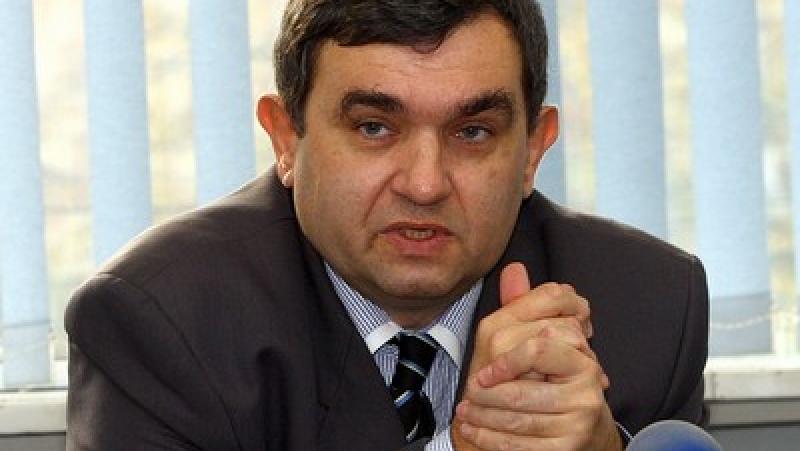/ world today news/ Fiscal stability, which the government keeps bragging about, is at the expense of limited production and reduced consumption
And in 2013 stagnation of the Bulgarian economy and bankruptcy of thousands of small and medium-sized companies is expected. GDP growth is unlikely to be more than a paltry 0.8 – 1.2%. The achieved fiscal sustainability, which the Bulgarian government brags about on occasion and without occasion, will once again be at the expense of limited production and extremely reduced consumption due to very low incomes in our country and falling employment. Citizens’ savings, and from 01.01.2013 there is already a 10% interest tax on them, they have already reached 35.3 billion. BGN This growth is the result of postponed consumption and the refusal of investment activity due to the difficult conditions for doing business in our country. Regardless of the fact that from 1.01.2013 the minimum wage was increased from BGN 290 to BGN 310, and from 1.04. pensions will rise by just over 9%, GDP per capita remains 55 percent below the EU average.
Finance Minister Simeon Dyankov again found a reason to justify
the lack of social policy
of the “Borisov” cabinet. This time it is the European Union’s fault that pensioners in Bulgaria did not receive Christmas supplements. According to him, the last tranche from the EU under European programs for 2012. – over 300 million euro, was literally translated on the last day of the budget year – on the afternoon of December 28, and therefore there are no Christmas supplements. Dyankov praised the work of the “Customs” Agency, which exceeded its plan by 25 million. BGN and the National Revenue Agency, where 150 million entered. BGN more than intended, but in the end it doesn’t “warm” anyone. The next government will leave an extremely heavy legacy in the financial sphere and must urgently seek additional revenues, and it is not excluded that the new parliament will update the 2013 Budget in September, increasing the deficit to a possible 2%.
Most business representatives are skeptical about the possibility of carrying out or starting some of the reforms that the Bulgarian economy needs in the next year. Certainly in the first half of 2013. the current government will not encroach on the monopolies that “suffocate” Bulgarian business, especially small and medium-sized ones. The most alarming situation is in the sectors of fuels, medicines and the production of some foods.
For Bulgarian exporters operating on the market of EU member states, the situation in 2013 will remain difficult and their sales growth in these markets will most likely not occur.
For Simeon Dyankov and co, Bulgaria is an “island of stability”. But she became such an island after a cruel
impoverishment of the Bulgarian people
and ruin as a result of hyperinflation and the “bandit privatization” of hundreds of enterprises and the bankruptcy of dozens of banks during the crisis in the 1990s. Bulgaria overcame the recession in 1997, which was partly helped by the introduction of the currency board. In the next 10-12 years, the Bulgarian economy experienced moderate growth, and the growth rate was highest in 2004. (6.7 %) and in 2008. (over 6%). In practice, the recession appeared already in the following year – 2009, when a record decline of the gross domestic product was registered, and subsequently it increased only between 0.4% and 1.7% per year according to NSI data, which is extremely low growth even for a developed country economy. In a developing economy, such as Bulgaria’s, such growth rates can be called stagnation at best. The reasons for it are primarily corruption, bad management, but also the currency board (it is a known obstacle to the activation of the Bulgarian exporter) and poverty. The currency board system is an obstacle to improving the competitiveness of the Bulgarian economy with the devaluation of the price of money, and in practice the price of labor is devalued in our country. For the poorest country in the EU, this is fatal, and therefore the stagnation of the Bulgarian economy will probably be prolonged, and in 2013 it will be felt in and from the so-called working poor in our country much stronger.
There is another disparity. It was stated that the GDP per person of the population is about 45-46%, and the average income of a worker in our country is about or even below 25% of the average income of an employed worker in the EU, i.e. he is about 20% lower than his earned GDP?! I.e. the tales of too
low competitiveness
of the Bulgarian economy, which determines our low incomes, are not entirely reliable, or at least not as much as they appear to us. There are two countries in the EU with a higher coefficient of income inequality than in our country (according to Eurostat data) – Spain and Latvia. According to IMF statistics from the last 30 years, with high income inequality, a slowdown in economic growth in the medium and long term is inevitable.
Already in the second half of 2013. our next government should implement a smooth and moderate increase in incomes. A sure way to achieve this is to increase investment in science, technology and innovation.
No major and substantial reforms are expected in terms of increasing employment and reducing unemployment. It reaches 700 thousand Bulgarians of working age, and in practice the real unemployment is over 17-18%. Coming up in 2013. workers in another 9 large plants in our country to repeat the fate of the workers from VMZ-Sopot. This is the number of enterprises that currently owe more than 12 salaries to each of their workers and are in liquidation proceedings.
In 2013 a decline is looming even in the prime minister’s favorite infrastructure construction. In 2011 it was down about 16% from 2010. according to NSI data. The overall decline in construction in 2011 was 9.5%, i.e. the decline in magnified infrastructure construction is even greater than the industry average. Based on current data, it can be predicted that in 2013 year, the GDP produced in the “construction” sector will decrease by another 7% compared to the previous year, and at the same time, one by one, large projects started by previous governments are coming to an end. There has also been a sharp decline in the number of building permits issued in recent years, more than half the number in 2011. compared to 2008 There are about 60,000 unemployed builders in our country. The number of firms registered with the Chamber of Builders has fallen by around a third and from around 6,000 in 2008 to the end of 2012. is around 4,000. At the same time, municipalities owe construction companies 200 million. BGN However, in 2013 the commissioning of three malls in our largest cities is expected, and a retail chain from the Baltic countries will open hypermarkets in our country. This practically means that in 2013 at least a few hundred representatives of small and medium-sized businesses will close their smaller commercial establishments.
The investments in our country, which are almost
have bottomed out
are unlikely to grow significantly in 2013. Growth can be expected only with the help of a significant inflow of foreign investments and the resumption of credit activity. Rather, the growth of foreign investments, as well as activation of lending, is not expected in the short term, i.e. until the end of this year. This is emerging despite the fact that a new credit institution will start operating in our country in the spring of 2013. with the name Meinl Bank. It will be a subsidiary of a bank with the same name, which is headquartered in Vienna. Its capital will be 10 million. euro and will be the first investment bank in Bulgaria.
This year, new “players” will appear in yet another area of finance. A redistribution of the private health insurance market will occur in 2013. due to the entry into force of the new requirements for companies that can offer such services from August this year. “DZI – Health Insurance” plans to merge with the life insurance company of the group, which has already received an additional license from the Financial Supervision Commission (FSC) for health insurance. The “Generali Zakrila” fund, which will merge into the general insurance company of the group, as well as “Bulstrad Zdrave”, part of the “Vienna Insurance Group”, have also announced such an intention. Adopted in August 2012 legislative changes provide that within one year all health funds must submit documents to the Financial Supervisory Service for a new license for insurance activity, and in order to obtain it, they must also meet higher requirements, i.e. – capital increase of 2 million BGN to 4.6 million BGN, as well as stricter reporting and supervision and stricter control over shareholders. In addition, the establishment of a health fund will no longer be possible with only 500 thousand. BGN initial capital and it will be forbidden to use loans for its acquisition, which was valid until now when establishing a bank.
Probably in the spring of 2013. the Bulgarian army will also acquire F-16 fighters from the so-called third use, which we will buy from Portugal. The GERB government gave the “green light” to negotiations for the purchase of used fighter jets at one of its last meetings in 2012. Bulgaria is expected to pay 700 million for nine planes. BGN This is double the amount – 268 million. dollar that Portugal paid in 1999. of the USA, and for the purchase of 25 used F-16?!?
At the end of 2012 Bulgaria lost 51 million euro – unused funds under the Program for the Development of Rural Areas, implemented by the State Fund “Agriculture”. They are from the 2010 budget, which is paid in 2012. In 2013 we will certainly lose hundreds of millions of euro funds. This will happen, regardless of the boasting of the ministers from the “Borisov” cabinet that we are hardly excellent in absorbing European money, which is not the case at all, since Bulgaria is at the bottom of this ranking and is in 25th place out of 27 EU member countries.
*The author is a member of the Board of Directors of BCCI
#Fourth #consecutive #year #recession #economy


